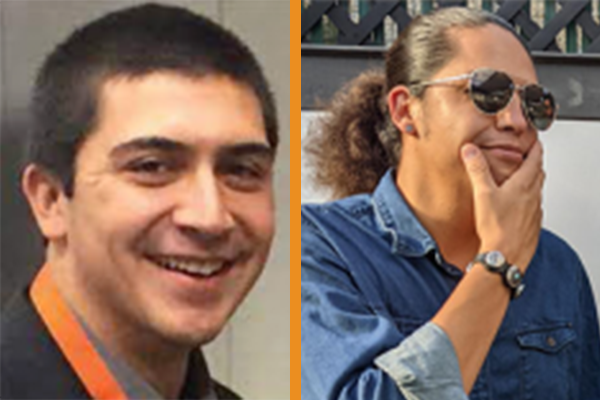
This series of roundtable webinars features presentations and moderated conversations that foster cross-disciplinary exchange. Each roundtable showcases 2-3 members of the Global Arts + Humanities Discovery Theme's post-MFA and postdoctoral cohort whose work shares disciplinary, methodological and/or topical alignment.
Roundtable One: On Indigenous Displacement and Reconciliation
- MICHAEL CHARLES
Postdoctoral Researcher, Newark Earthworks Center
Presentation Title: Land Grant Institutions and Indigenous Displacement — A Path Towards Truth and Reconciliation
The Ohio State University and other 1862 land grant institutions were founded on endowments raised by redistributed "public domain" land. However, it's no coincedence that this public land was available 30 years after Congress passed the Indian Removal Act. This work connects land grant endowments to the removal of Indigenous communities, identifying today's Tribal Nations with whom we must reconcile, while also quantifying impacts to food security and food productivity.
- GREGORIO GONZALES
Postdoctoral Researcher, Department of Comparative Studies
Presentation Title: On an Indigenous Peoples' History of New Mexico, Challenge and Opportunity
It is said that New Mexico remains a fertile field for learning about Indigenous peoplehood struggles across Spanish, Mexican and US political epochs. This place has inspired many tribal visions of self-determination and religious liberty — especially as the home to 24 federally-recognized tribal nations today, alongside urban Indigenous communities and non-recognized Indigenous communities. Drawing on ethnohistorical and ethnographic research data, this presentation will consider the diversity of Indigenous voices coloring these conversations manifesting inside and outside of the classroom.
- (Moderator) MELISSA CURLEY
Associate Professor, Department of Comparative Studies
- (Moderator) JOHN LOW
Director of Newark Earthworks Center
About GAHDT’s post-MFA and postdoctoral program
This program supports post-MFA and postdoctoral researchers and creative practitioners and provides professional development opportunities with the goal of facilitating their entry into tenure-track positions in the academic marketplace and the public arts and humanities. The valuable presence of these researchers and practitioners adds intellectual energy and vitality to the College of Arts and Sciences as a whole, contributing to interdisciplinary collaboration between academic units and the development of innovative scholarship and curricula.
